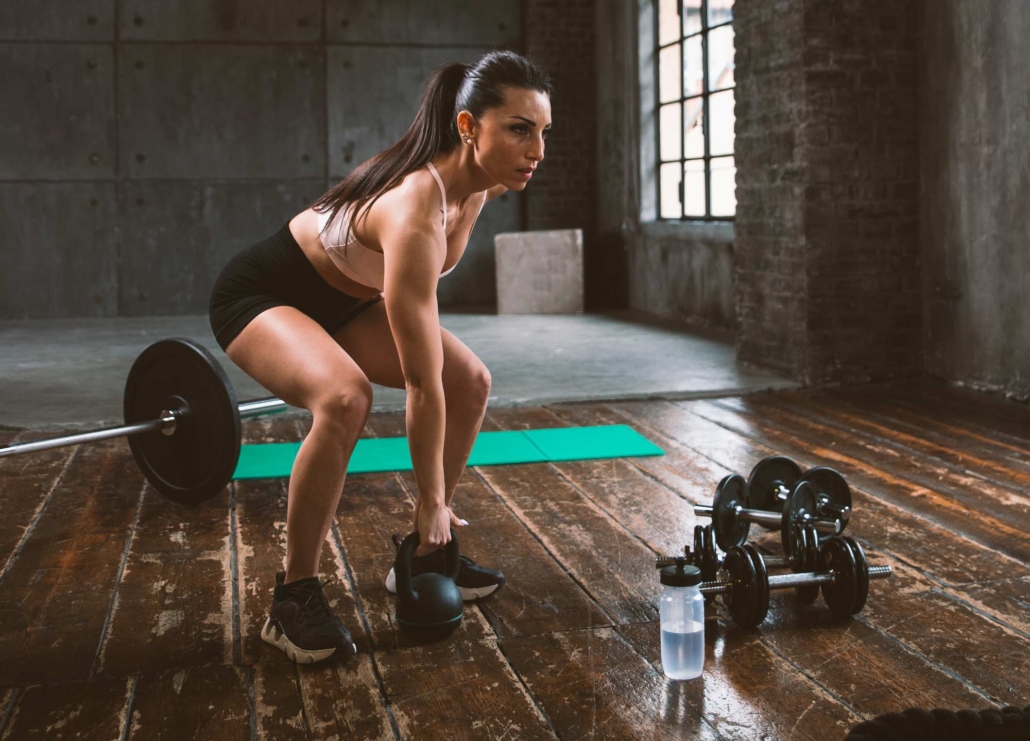How to stay hydrated during exercise.
Staying hydrated is crucial for maintaining overall health and well-being. Water is essential for numerous physiological functions in the body, and proper hydration is necessary for these processes to occur optimally. Here are some key reasons highlighting the importance of staying hydrated:
It’s worth noting that other sources of fluids, such as fruits, vegetables, and beverages like herbal tea or low-sugar drinks, can contribute to overall hydration. However, water remains the primary and most natural choice for staying adequately hydrated.
The role of water in physical fitness
To stay properly hydrated, it is generally recommended to drink an adequate amount of water throughout the day, which can vary depending on factors such as age, activity level, climate, and overall health. While the exact amount varies, a commonly cited guideline is to aim for around 8 glasses (64 ounces or about 2 liters) of water per day. However, individual hydration needs may differ, and it’s important to listen to your body’s signals for thirst and adjust your fluid intake accordingly.
Staying hydrated is crucial for maintaining overall health and well-being. Water is essential for numerous physiological functions in the body, and proper hydration is necessary for these processes to occur optimally. Here are some key reasons highlighting the importance of staying hydrated: THE QUALITY OF WAER MAKES A DIFFERENCE TODAY, THE WATER WE GET OUT OF TAP MAY CONTAIN SUSTAINS ITS IMPORTANT TO – FILL FROM NOTES
Fluid Balance: Water is a fundamental component of cells, tissues, and organs. It helps regulate body temperature, lubricates joints, and cushions vital organs. Adequate hydration ensures proper fluid balance in the body, allowing these functions to be carried out efficiently.
Nutrient Absorption: Water plays a vital role in the digestion and absorption of nutrients. It helps break down food, facilitates the absorption of essential nutrients in the digestive tract, and transports them throughout the body. Sufficient hydration supports optimal nutrient uptake and utilization.
Waste Removal: Adequate hydration is necessary for the kidneys to filter waste products from the blood and produce urine. Drinking enough water helps flush out toxins, metabolic byproducts, and other waste materials from the body, promoting healthy kidney function and preventing issues like kidney stones and urinary tract infections.
Physical Performance: Proper hydration is vital for maintaining optimal physical performance. During exercise or physical activity, the body loses water through sweat, and dehydration can negatively impact performance, leading to fatigue, decreased endurance, and impaired cognitive function. Staying hydrated helps maintain energy levels, supports muscle function, and improves exercise performance.
Importance of hydration for overall health: Hydration doesn’t just impact your physical performance; it also affects your mental state during exercise. Dehydration can lead to feelings of dizziness, lack of focus, and decreased cognitive function.
Physical Performance: Proper hydration is vital for maintaining optimal physical performance. During exercise or physical activity, the body loses water through sweat, and dehydration can negatively impact performance, leading to fatigue, decreased endurance, and impaired cognitive function. Staying hydrated helps maintain energy levels, supports muscle function, and improves exercise performance.
Temperature Regulation: Water acts as a coolant for the body, regulating its temperature. When we sweat, the evaporation of sweat from the skin helps dissipate heat and cool down the body. Adequate hydration enables efficient sweating and helps prevent overheating and heat-related illnesses, particularly in hot climates or during intense physical exertion.
Cognitive Function: The brain relies on proper hydration to function optimally. Even mild dehydration can impair cognitive performance, attention, memory, and mood. Drinking enough water ensures adequate hydration of brain cells, promoting mental clarity, focus, and overall cognitive function.
Skin Health: Water is essential for maintaining healthy skin. It helps hydrate the skin cells, improve elasticity, and promote a glowing complexion. Sufficient hydration can also aid in preventing dryness, flakiness, and the formation of wrinkles.
Remember to consult with a healthcare professional for personalized advice regarding your specific hydration needs, especially if you have any underlying health conditions.
READY TO START?
Hydration and exercise performance
The Importance of Hydration Before Your Workout:
When it comes to optimizing your workout performance, hydration plays a crucial role. Adequate hydration not only supports your overall health but also enhances your physical capabilities and ensures you get the most out of your exercise routine. Here’s why prioritizing hydration before your workout is essential:
Enhanced Physical Performance:
Proper hydration is vital for optimal physical performance. When you’re well-hydrated, your body can effectively regulate its temperature, allowing you to maintain endurance and perform at your best. Dehydration, on the other hand, can lead to fatigue, decreased stamina, and reduced exercise capacity. By hydrating adequately before your workout, you give your body the fluid it needs to function optimally, improving your strength, power, and overall performance. KEEP IN MIND PROPER HYDRATION ALLOWS YOUR BODY TO FLUSH TOXINS THAT BUILD UP IN THE MUSCLE DURING TIMES OF OXIDATED STRESS. – SEE NOTES
Increased Energy Levels:
Water is essential for providing energy to your muscles. Staying hydrated helps deliver oxygen and nutrients to your muscles, keeping them fueled and energized during your workout. When you’re dehydrated, your muscles can become fatigued more quickly, leading to a decrease in performance. By hydrating properly before exercising, you give your muscles the energy they need to perform efficiently, helping you maintain intensity and sustain your workout for longer periods.
FILL IN ROOM TEMP WATER
Hydration and workout recovery
Improved Focus and Mental Clarity:
Hydration doesn’t just impact your physical performance; it also affects your mental state during exercise. Dehydration can lead to feelings of dizziness, lack of focus, and decreased cognitive function. By drinking enough water before your workout, you help ensure that your brain receives the hydration it needs to stay sharp and focused. This allows you to maintain mental clarity, concentrate on your form, and maximize the benefits of your exercise routine.
Optimal Recovery and Injury Prevention:
Proper hydration supports post-workout recovery and helps prevent injuries. During exercise, your body loses water through sweat, and failing to replenish those fluid losses can lead to dehydration. Dehydration can prolong recovery time, increase the risk of muscle cramps and strains, and hinder the repair process of damaged tissues. By hydrating adequately before your workout, you set the stage for a quicker recovery and reduce the likelihood of exercise-related injuries.
Tips for Pre-Workout Hydration:
Drink water at least 1-2 hours before your workout to allow for proper absorption.
Aim to consume around 16-20 ounces (450-600 ml) of water before exercise.
If you’re engaging in intense or prolonged workouts, consider hydrating with a sports drink that contains electrolytes to replenish lost minerals.
Listen to your body’s thirst cues throughout the day and make an effort to drink water regularly, not just before your workout.
Avoid consuming excessive amounts of caffeine or alcohol, as they can contribute to dehydration. Remember that individual hydration needs can vary based on factors such as body size, activity level, and environmental conditions. Adjust your fluid intake accordingly.
Prioritizing hydration before your workout is a simple yet powerful way to optimize your performance, improve endurance, and protect your overall well-being. Make it a habit to hydrate adequately, and watch as your workouts become more effective and enjoyable. Cheers to a hydrated and successful fitness journey!
READY TO START?
Electrolytes are essential for maintaining proper bodily functions and overall health. They are minerals that carry an electric charge when dissolved in body fluids such as blood, urine, and sweat. The major electrolytes in the human body include sodium, potassium, calcium, magnesium, chloride, phosphate, and bicarbonate. Here are some reasons why electrolytes are important.
Fluid balance:
Electrolytes help regulate the balance of fluids inside and outside cells. They maintain proper hydration levels by controlling the movement of water across cell membranes. Sodium and potassium, in particular, play crucial roles in fluid balance.
Nerve function:
Electrolytes are involved in transmitting electrical impulses along nerves, which allows for proper muscle contraction and relaxation. Sodium and potassium are particularly important for nerve signaling and muscle function.
Muscle function:
Electrolytes are vital for muscle contractions, including those of the heart. Calcium, sodium, and potassium are crucial for maintaining the electrical balance necessary for muscle contractions and coordination.
pH balance:
Electrolytes also help regulate the acid-base balance (pH) in the body. The bicarbonate ion, for example, helps buffer acids and maintain the blood’s pH within a narrow range to support normal physiological functions.
Cellular function:
Electrolytes are involved in numerous cellular processes, including nutrient transport, enzyme activity, and maintaining proper cell membrane potential. They enable cells to perform essential functions and maintain their structural integrity.
Fluid and electrolyte losses:
Electrolytes are lost through various means, such as sweating, urination, and diarrhea. Replenishing electrolytes is especially important during physical activity, in hot weather, or when dealing with conditions that cause fluid loss.
Dehydration prevention:
Adequate electrolyte balance is crucial for preventing dehydration. When water is lost from the body without sufficient electrolyte replacement, an imbalance can occur, leading to symptoms like fatigue, dizziness, muscle cramps, and impaired cognitive function.
To maintain proper electrolyte balance, it’s important to consume a balanced diet that includes foods rich in electrolytes. Foods like fruits, vegetables, dairy products, nuts, seeds, and lean proteins are good sources of essential electrolytes. Additionally, in certain situations where electrolyte imbalances occur, such as during intense exercise or illness, electrolyte supplements or sports drinks may be recommended under the guidance of a healthcare professional.




